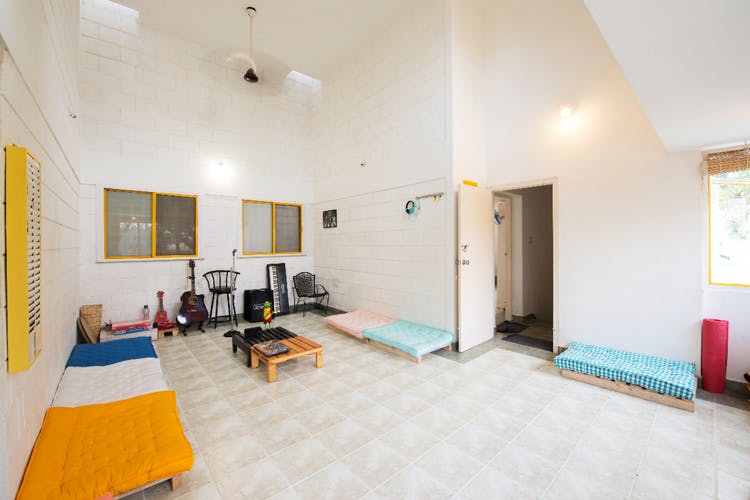A decrepit Koramangala house was claimed by Rajat Kukreja {a former Airbnb host} along with do-gooder friends who turned the place upside down in their effort to make Cuckoo Hostel a place that’d become a benchmark for eco-friendly living. There’s a terrace garden for organic veggies, refurbished everything, wall murals by friends of friends and cycles to move around.
Tech It Away: Koramangala's Zero-Waste Hostel Is Making Us Go Cuckoo
Shortcut
Between Cycle And Recycle
When Rajat and party laid siege, they only had ideas. Then, someone got a crumbling chair and another person got a spare cupboard, beds were made out of industrial packaging and the neglected kitchen slab was turned into a sink.
Basically, days turned to nights and the gang worked on getting in energy efficient fittings and cracking out a formula to recycle and reuse every small and big article in the house, while local artists dropped by and painted the walls in bright hues.
Cuckoo{ned} In Goodness
Rajat’s a big believer in peer-to-peer learning and has made ample room for ideas to flow freely. There’s a library and a jam room where guests can do what their hearts desire – read, converse, sing badly or share life lessons with a willing audience. This common room effortlessly turns into a learning centre where eager guests can pick up new skills, habits and attend workshops.
Sustainable Living So Cheap?!
Creative types can now stop fretting about earning a pittance – Cuckoo Hostel’s rate card will leave you chirping for a long time. You can soak in a lot of sunlight and inspiration at anything between INR 399 and 699 a night if you stay at one of their three dormitories or private rooms.


